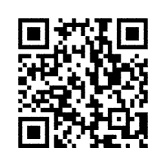
I have been at the task of “robot rights” for some time. Its first formal articulation occurred in the last chapter of the book Thinking Otherwise: Philosophy, Communication, Technology (Purdue University Press, 2007). That final chapter eventually spilled over into an entire book-length analysis, The Machine Question: Critical Perspective on AI, Robots and Ethics (MIT Press, 2012), which in turn generated a number of subsequent essays resulting from my efforts to respond to and take responsibility for important questions and criticisms that the book had made possible. These essays include: “A Vindication of the Rights of Machines” (Gunkel 2014a); “The Other Question: The Issue of Robot Rights” (Gunkel 2014b); “Apocalypse Not, or How I Learned to Stop Worrying and Love the Machine” (Gunkel and Cripe 2014); “The Rights of Machines: Caring for Robotic Care-Givers” (Gunkel 2015); and “Another Alterity: Rethinking Ethics in the Face of the Machine” (Gunkel 2016c).
This book is a continuation and culmination of that effort. Its current form and configuration are the direct result of a plenary address developed for and presented at Robophilosophy/TRANSOR 2016: What Social Robots Can and Should Do? This conference (the second in what is now a series of Robophilosophy conferences) was convened at the University of Aarhus, Denmark in October of 2016. My sincere thanks to Johanna Seibt and Marco Nørskov, who organized this event and in so doing created a unique venue for the kind of discussions and debates that have made work like this possible. A debt of gratitude is also due to the other presenters and participants at the conference who provided engaging opportunities for conversation throughout the event and responded to the presentation with thought-provoking questions and comments.
These critical rejoinders stayed with me after the conference and accompanied me on my way to the University of Vienna, where I had the good fortune to be able to brainstorm with Mark Coeckelbergh. Mark has been and continues to be a brilliant “sounding board” for bouncing around ideas, and it was due to these interactions in Vienna that it first became clear to me that this book needed to be the next writing project. In an effort to respond to Mark’s insightful provocations and to test the basic concept for the book, I developed the conference presentation into a full paper shortly after returning home to Chicago. The paper (which bears the title “The Other Question: Can and Should Robots have Rights?”) was completed in January of 2017, published in Ethics and Information Technology in the fall of that year (Gunkel 2017a), and thoughtfully reviewed by John Danaher (2017b) on his “Philosophical Disquisitions” blog.
While the paper—which is a sort of sketch of what is presented here in greater detail—was working its way through the submission process at the journal, I began formulating ideas for the book. This material was then shepherded through the proposal and review process by Philip Laughlin at the MIT Press. I have now worked with Philip on three titles, and I am, every single time, grateful for his knowledge and intuitive grasp of the strengths and weaknesses of a project and his ability to tap the best peer-reviewers. Like the two previous books, Robot Rights would not have been possible without Philip’s insights and “behind the scenes” effort and guidance.
The writing of the manuscript took place during the spring and summer of 2017 and was supported by the generous gift of time provided by way of sabbatical leave from Northern Illinois University. The final version was ushered through the twists and turns of the production process by Marcy Ross, and the index was assembled by Danielle Watterson. Like all previous publication efforts, this entire enterprise would not have been possible without the love and supported of my family: Ann Hetzel Gunkel, Stanisław Gunkel, and Maki—the German shorthaired pointer, in whose face I have had to face all kinds of questions regarding who or what can and should be Other.
